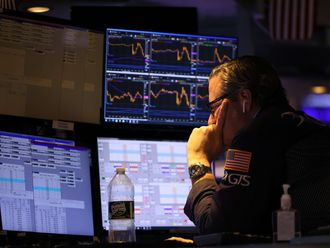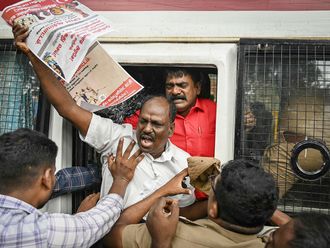Pollution is closely linked with the development of resources, but fighting it allows countries to ensure sustainable development and preserve the environment. While some countries have achieved great progress in reducing emissions, others still suffer from high pollution which affects their resources and harms them financially.
Not all countries agree on how to address this issue. The US has opposed the European approach in dealing with gas emissions, especially global warming, which is part of the Kyoto protocol.
According to global reports, the US has been named as one of the world's top polluters and emitter of greenhouse gases. Australia and Arab countries were also included on that list.
The measures adopted by European countries during the past ten years have yielded important results.
The black smoke that blanketed European cities, due to the use of diesel fuel in vehicles, has completely vanished. The air in these cities is now much cleaner and healthier.
Some Asian countries such as Thailand have also achieved similar results, especially after they forced cars and motorbikes to switch to natural gas in place of petrol and diesel.
Currently, pollution comes at a very heavy price. Firstly, it leads to the destruction of the environment, natural resources, agriculture and underground water, which in turn leads to a lack of resources and flawed approaches in finding the necessary foundations for sustainable development.
Increasing diseases
Secondly, pollution can have serious consequences on a community's health, causing chronic diseases, which have increased alarmingly in Gulf Cooperation Council (GCC) countries, adding significant cost to their annual budgets.
The Gulf waters, for example, are considered the world's most polluted seas, which led to a decrease in fish resources and the extinction of some species. This is a big loss of resources. These resources can be developed if Gulf countries cooperate to reduce all forms of pollution, especially those caused by the washing of oil tankers.
Thirdly, the late implementation of solutions that deal with sediment pollution will lead to worsening the damage caused by it, as well as increasing the costs for these solutions.
Moreover, dealing with all the damage will only become more complicated with the passing of time.
According to all indexes, the GCC countries are heading towards high growth rates. This means that there is a real possibility that pollution rates will increase if serious and necessary steps are not taken, both individually and collectively, by the GCC.
It seems that there are some directives made by the GCC to deal with this important economic, environmental and health issue. In the UAE, and specifically Abu Dhabi, some petrol stations which supply natural gas instead of petrol have been opened.
Qatar and Bahrain have also imposed measures to monitor pollution levels near petrochemical and aluminium producing factories. These are important measures that require more support, especially due to predictions regarding increases in population which will lead to an increase in gas emissions and demand for all forms of power.
On the GCC level there have been no joint agreements or measures despite the heavy damage inflicted on resources and the environment. Many attempts were made by these countries to cooperate on this issue during the 90s, but such attempts are now frozen.
Future vision
Since this matter is related to sustainable development, community health and preservation of resources, the General Secretariat of the GCC could set a future vision for caring for the environment and curbing pollution. It should also invite other countries in the region to join these efforts.
Agricultural and fish resources in the GCC are endangered at a time when the world is suffering from declining food resources, resulting in a radical increase in prices on international markets.
In this regard, the GCC can benefit from the experience of European and Asian nations, which have achieved good results in stemming pollution and preserving their resources, in addition to preserving the foundations for sustainable development.
Dr Mohammad Al Asoomi is a UAE economic expert.












